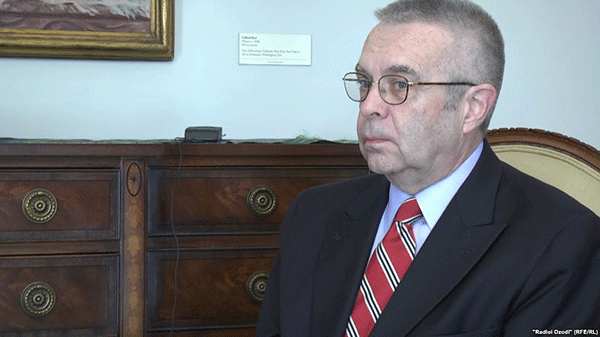WASHINGTON (Massis Post)—Russia and the United States are closely cooperating on the Karabakh issue despite the differences existing between the two countries, US Co-Chair of the OSCE Minsk Group Richard Hoagland said in an interview with Voice of Armenia.
“Sure, our national interests differ from those of Russia, because we have a different history of relations, different views in our approaches. However, having different interests does not mean we cannot work together on the issue,” he said.
According to the Ambassador, Moscow wants establishment of peace in the South Caucasus like Washington and Paris do.
“For me it’s clear that Moscow does not want war in Nagorno-Karabakh, Moscow does not want war between Armenia and Azerbaijan. It will destabilize the whole region and harm Russia’s interests,” Hoagland said.
According to him, even under the conditions of worst deterioration of Russian-American relation, all three Co-Chairs have closely cooperated towards peaceful settlement of the Karabakh issue.
“This is a sphere where we can say the relations between Washington and Moscow have no negative impact,” he added.
Hoagland said “the mediators are trying to resume full-scale negotiations between the parties.”
“Our job is to create an atmosphere of trust that will allow to bring the parties to the negotiating table,” he said.
Speaking about the Four-Day War in April 2016, Hoagland said “We have not yet reached a point, where the international community can ensure an absolute eradication of violence through peacekeepers or economic support. That has to be done by leaders themselves.”
According to the Ambassador, it’s time for a compromise solution of the issue, which any of the parties will benefit from.
“Eventually, it is the responsibility of the leaders of the parties to seriously address real peace talks. When that happens, it will open up all types of opportunities for the region – for development of communication and cargo transportation, decrease of isolation, more favorable economic conditions for trade. Peoples will also feel that,” he said.
Hoagland believes the U.S. must get more actively involved in the peace process.
“I agree that we need to be a little more active, we are in the earliest stage of a new US Administration. This new Administration is still developing its foreign policy approaches. Therefore, let’s be more patient and see how things are developing in the coming months,” Hoagland said.





















































